Imagine being torn from your home, enduring a harrowing voyage, and then forced into a life of unimaginable hardship. This isn’t just a story; it’s a dark chapter in our history that still casts a shadow today. Dive with us into the depths of the Transatlantic Slave Trade, the wealth it built, and the burning question of the century: Is it time for reparations? Stay with us as we unravel a tale of pain, profit, and the pursuit of justice. Don’t forget to like and subscribe for a journey that will challenge everything you thought you knew.
As we reflect on the harrowing journey of millions, the weight of their chains still echoes in the hearts of their descendants. These are not just tales from the past; they’re the foundation of legacies, the cries of souls seeking justice, and the reminder of a debt that’s yet to be settled.
These haunting melodies have shaped generations, the silent tears of generations past and present have watered the roots of countless families, and the resilient spirit that continues to seek justice.
It is calculated that, between the 15th and 19th centuries, about 12.5 million African people were literally kidnapped from their own countries in Africa and forcibly transported by European ships to the New World, where they were sold into slavery by specialized merchants.
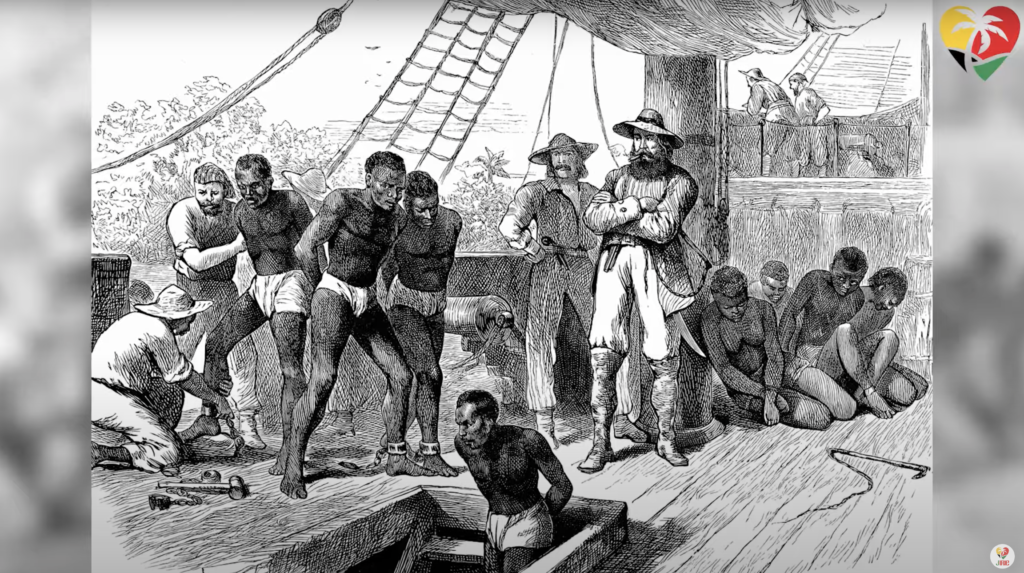
Of those, only a small percentage made it through the horrible conditions of the brutal voyage and were exploited in plantations, mostly in Brazil and the Caribbean, where their work, performed under inhuman conditions, benefitted other people, and ultimately killed them or led them to live miserable, awful, sad lives of pain a harrow.
This dramatic page of the world’s history should not be forgotten or erased but remembered, studied, and explained for centuries to come. The countries that exploited African slaves currently owe much of their riches from their hard brutal labor, and this situation now generated heated, passionate debates among the descendants of enslaved Africans brought to the “new world”: Should those countries that perpetrated these heinous atrocities be considered responsible today for their ancestors’ actions? And should they be repaying the people they profited from, even today, centuries after the abolition of slavery?
It is controversial in the so-called Western first world, yet not so controversial in the Caribbean. Here in our beautiful islands and tropical countries, where distant heirs of the African slaves populate in the majority, the requests are clear: it is expected that countries that took so much from us, start giving back to the countries that made them rich to the expense of millions of human lives.
The Historical background
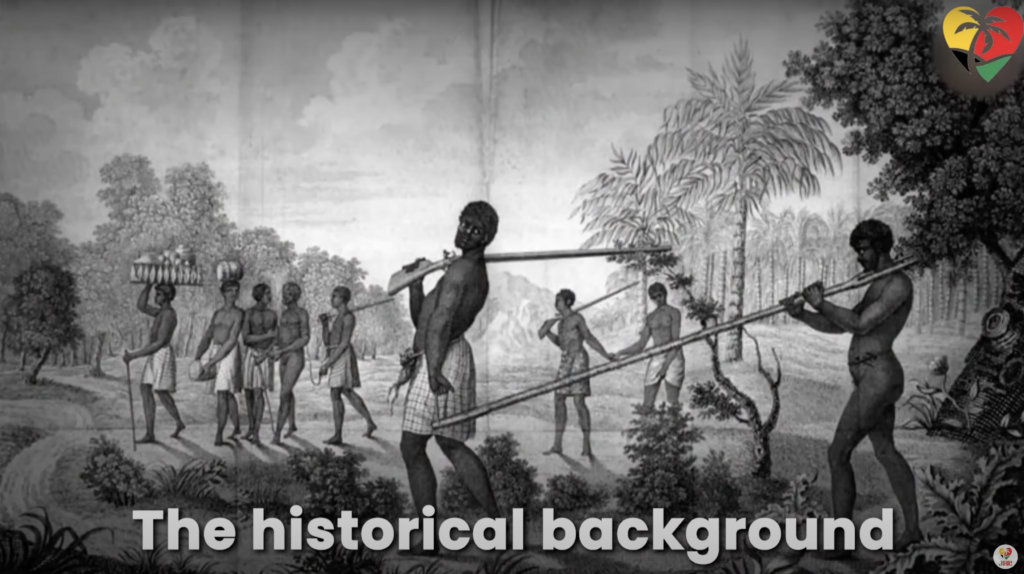
Let’s eviscerate the problem for a moment. Slavery has a long history that dates back way before what we associate it with today. Slavery was institutionalized by the time of the first ancient civilizations and was widespread in Africa, Asia, and Europe as early as 3500 BC. However, starting from the 16th century, the transatlantic slave trade began, at the hands of European merchants who purchased Africans and transported them to the European colonies in the Americas. While transporting hundreds of enslaved people, they were also exporting commodities such as gold and ivory, gunpowder, cloth, and weapons. While the transatlantic slave trade was eventually abolished in the course of the 18th century, it left a huge scar on the face of our planet, and we are still today constantly reminded of those hideous events. Furthermore, slavery is still in full action these days, just in different areas and in different forms, and is estimated to generate USD 150 billion in annual profits: think about forced child labor, sex trafficking, bonded labor, child sex trafficking, domestic servitude, unlawful recruitment, and use of child soldiers. It is a mentality hard to eradicate.
The Transatlantic Slave Trade
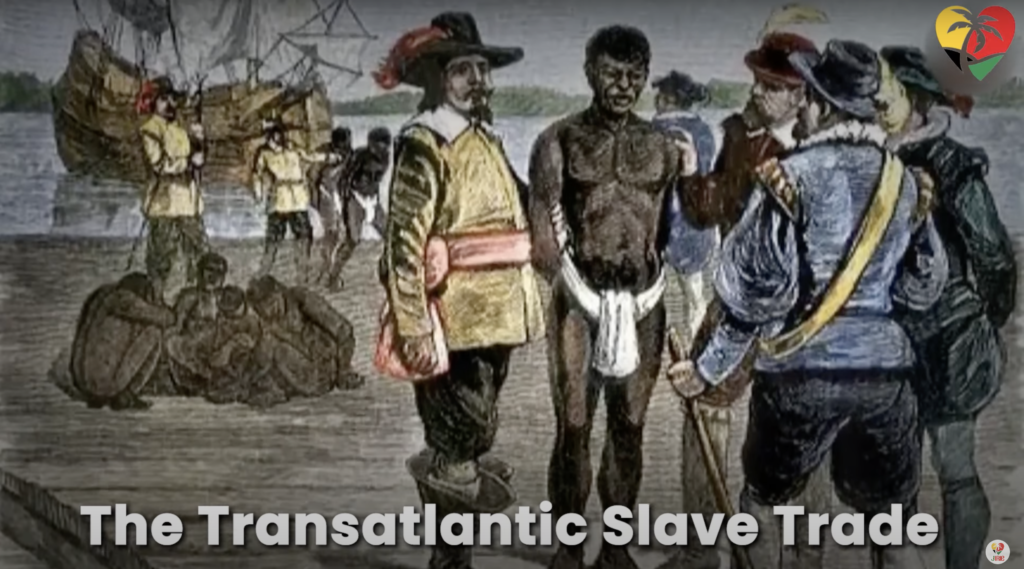
This infamous trade is what we want to focus on in our video today. Come to think of it, just imagine you are in your country, in your own house, surrounded by your family or friends, and some foreign people come to your house and forcibly take you away, in handcuffs, load you on a ship heading far, far away, with no possibility of contacting your loved ones ever again.
You are on a slave ship, chained to its walls, and you see all the other people around you slowly die one by one due to the horrible conditions you are all kept in. People are malnourished, their diseases are not taken care of, and the voyage takes weeks, even months, in rough seas, rain or shine.
If you are lucky enough, you make it to a foreign land alive where no one speaks your language or understands your culture, after surviving the trauma of losing everyone in your life and seeing your dead travel companions’ bodies simply thrown overboard, like ballast. Now, the forced labor begins, and you are expected to do heavy work for someone who now claims to be your master. You don’t have any rights, no education, no healthcare, not much food either. Powerful people at the top of the “slavery chain” profit from your work, but you don’t see a dime. How many years do you think you can live this way? What do you suppose your life expectancy to be?
The profits
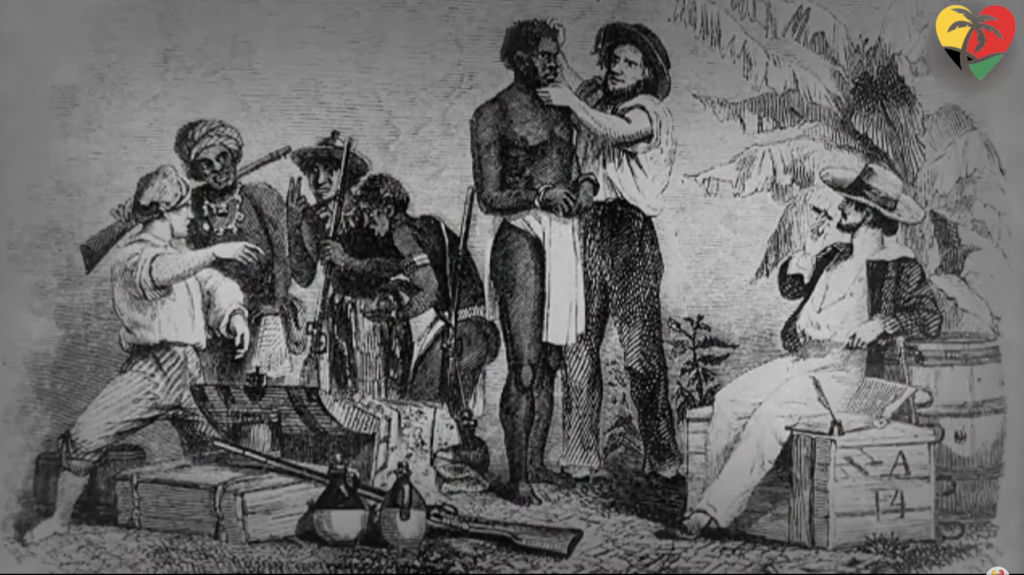
Thousands of present-day wealthy families owe most, if not all their fortune because of slavery from the backs of Africans. Slaves were used and abused in sugar, coffee, or cotton plantations, or again in gold or silver mines. This system impoverished the colonies and all those African countries contributing the manpower while enriching the old white leaders. It is now crucial to recognize how slavery, colonialism, and racism intersect, and how they still impact the lives of black people worldwide: These dreadful centuries of torture are what they all have in common. A great example is given by the Drax Hall plantation in Barbados, at the heart of many reparations fights due to its historic links to the birth of slavery in the British Caribbean. The Drax family is still profiting today from the work of enslaved people who lived and worked there in brutal conditions and died without any acknowledgment. Sugar is still grown at Drax Hall nowadays, and the building, despite the effects of time, is still standing as a memento of the atrocities perpetrated here. Richard Drax, its current owner, is often reported as one of the wealthiest members of the British House of Commons.
The Reparations Campaigns

In the early 2000s, Jamaican professor Verene Shepherd started advocating for colonial powers to compensate Caribbean nations for the horrors of slavery. Fast forward to our days, despite the matter being initially unnoticed or brushed off with awkwardness, the matter is routinely discussed worldwide and is taking more and more space on the agenda of Caribbean politicians and diplomatic summits.
The King of the Netherlands has formally apologized, a few prominent British families have done as well, and some set aside some funds to offer monetary compensation for their ancestors taking part in the slave trade. According to historical and financial experts, the slavery-related European debt runs into the hundreds of trillions of American dollars: an amount that no country could ever disburse, and any sum close to it would send any country into full bankruptcy.
Moreover, should any European government agree to pay Black people any large sum out of their taxes, their people would most certainly vote them out of power, feeding the thoughts of a large list of Reparations skeptics.
As per Vincentian-born political activist David Commission’s perfect definition, “Reparations is about (…) an acknowledgment, a proper apology, and then a sitting with the victims, or the representatives of the victims, and working out a package of compensation that [they] are involved in and approve.” In the past few years, Caribbean countries have detached themselves from the British monarchy and the European slave masters, in an effort to cut ties with colonization and to gain independence.
Barbados, for instance, which had gained independence and became a Commonwealth realm in 1966, eventually transitioned to a republic in November 12021, putting an invisible, yet strong barrier between the country and the British monarchy. With the demise of Queen Elizabeth II earlier this year, and the ascent to the British throne of King Charles III, and his inability to give a full, formal apology to the people of the Caribbean, our countries are putting more and more distance between them and the monarchy.
Caribbean nations demanded the royal family to make reparations for the slave trade, and King Charles has for the first time granted his support for research into the British monarchy’s historical links with transatlantic slavery, after the emergence of a document showing a predecessor’s stake in a slave-trading company. But is that enough?
The 10-Point Plan
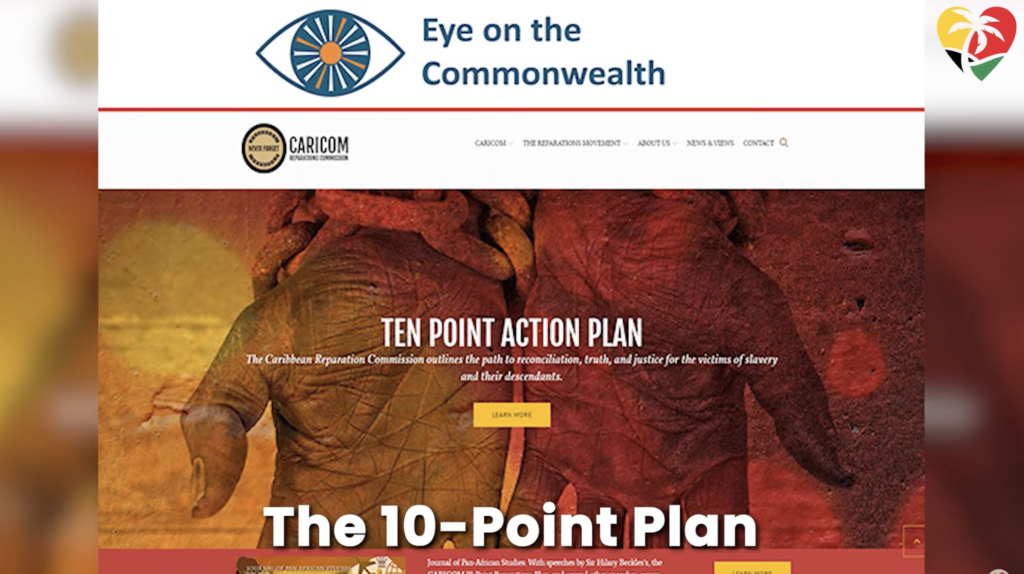
The CARICOM Reparations Commission, also called CRC, was established in 2013 following the initial 34th Regular Meeting of the Conference of Heads of Government of CARICOM, held in Trinidad and Tobago. During this event, the Prime Minister of St. Vincent and the Grenadines, Dr. the Hon. Ralph Gonsalves, proposed to engage the UK and other former colonial European nations such as Spain, France, and Portugal, on the matter of Reparations for Native Genocide and Slavery. Today, the CRC counts on the support of 12 Member States: Antigua and Barbuda, The Bahamas, Barbados, Belize, Dominica, Guyana, Jamaica, St Kitts and Nevis, St Lucia, St Vincent and the Grenadines, Suriname, and Trinidad and Tobago. As the CRC celebrates its first decade in action, recognizing the persistent harm suffered by the victims of slavery as the major cause of development failure in the Caribbean, it outlined a 10-point list aiming at a full admission of guilt and responsibility by the European governments through the following steps:
- Full formal apology
- Repatriation
- Indigenous People Development Program
- Cultural institutions
- Public health crisis management
- Illiteracy eradication
- African knowledge program
- Psychological rehabilitation
- Technology transfer
- Debt cancellation.
While the idea of paying reparations becomes more and more vivid in these nations, the movement is gaining momentum worldwide. The European Union formally and officially described slave trading as a “crime against humanity”, and the recent involvement in reparations efforts by institutions and families having historical ties with the slave trade is a sign of how far this movement has come, reaching the entire European continent, but also Asia. What started here in the Caribbean, the heart of the colonized world, has generated a domino effect expected to shake the entire planet.
These stories serve as a stark reminder of the sacrifices made, the lives lost, and the enduring strength of those who survived. But remembering isn’t enough. We must act, advocate, and strive for reparation and reconciliation. As we stand on the shoulders of those who came before us, let’s pledge to transform their pain into purpose, their struggles into strength, and their legacy into a beacon of hope and change. Thank you for being a part of this profound journey. Together, we can bridge the chasms of the past and pave the way for a brighter, more just future.
Let’s not just remember; let’s act, let’s heal, and let’s ensure that history’s scars lead us to a brighter, more equitable tomorrow. Thank you for joining us on this profound journey. Together, we can be the change.
As we conclude this deep dive into our shared history, we invite you to be a part of our mission to illuminate the authentic Caribbean narrative. If this resonates with you, please ‘like’ this video and ‘subscribe’ to our channel. Share it with friends and family to spread the knowledge. Turn on notifications to stay updated. Here, on this Caribbean channel, we aim to be your definitive, authoritative source for authentic Caribbean information. Together, we can ensure that the true essence of the Caribbean is celebrated, understood, and never forgotten. Thank you for your support.”


